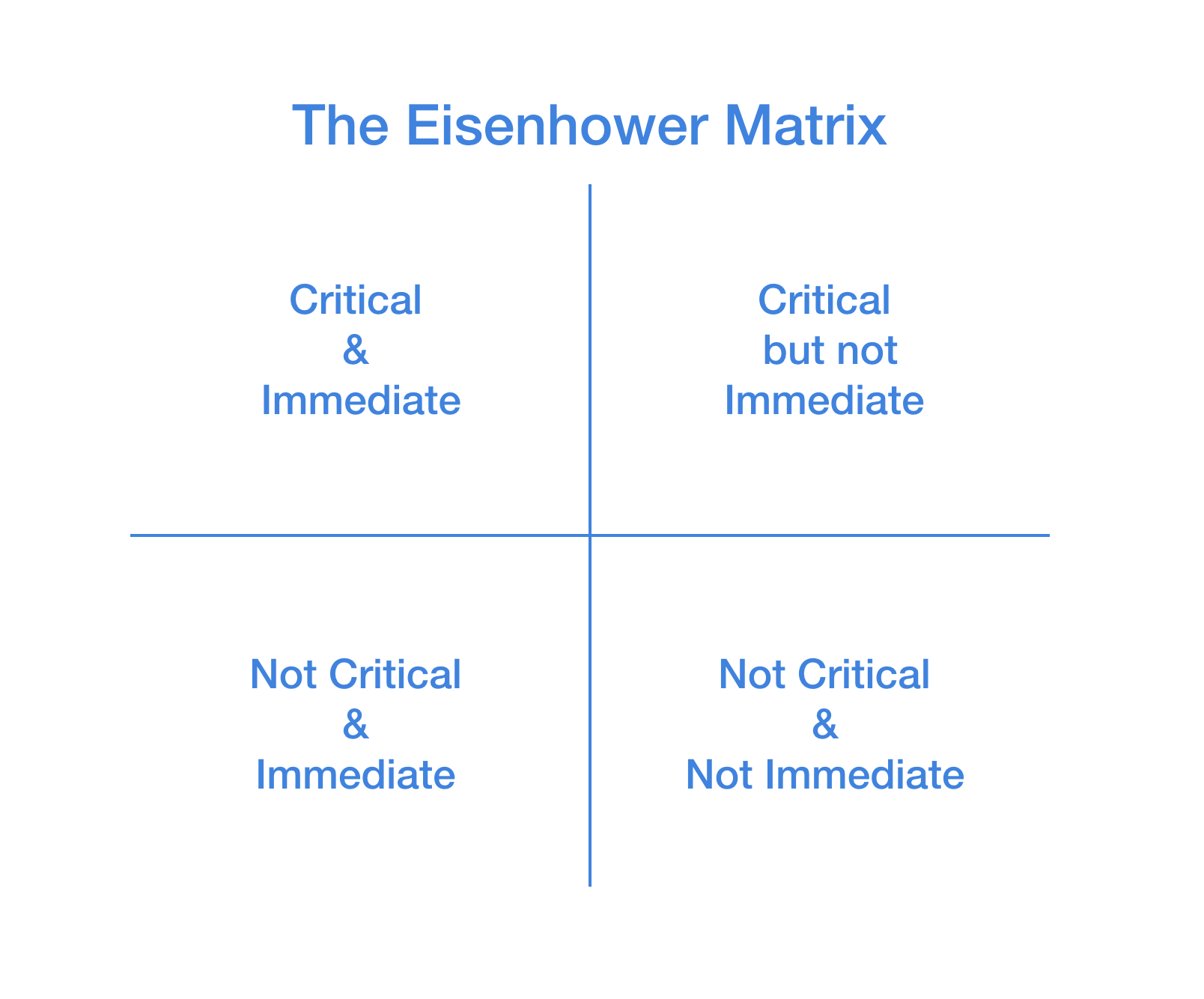Looking for the Productivity Formula
Everyone wants to be more productive. We are always trying to increase our rate of output. Google the word “productivity” and you can find countless articles on how to increase personally productivity, employee productivity, company productivity, etc. Yet, what many productivity methods forget is that none of us try to become more productive simply to be able increase our general volume of “doing.” The goal of productivity is be able to accomplish what we want sustainably.
Eisenhower’s Take on Productivity
Eisenhower understood this. Consequently, his productivity formula did not focus on increasing his speed or spending less time eating dinner, talking to his wife or engaging in any of the activities that are, not only characteristic to being human, but essential. Eisenhower’s productivity formula does not put a premium on finding a herculean way to increase our ability to expend more effort daily. Instead, his philosophy helps us find the unimportant things and take time away from them instead.
So, We Aren’t Trying to Do Things Faster?
Productivity methods that do not focus on increasing speed and output face a lot of skepticism. After all people wonder, ‘why do things slower if you can do them faster? First of all, by no means do things faster if your extra time is only going to be spent on unimportant things like projects and tasks that do not move your professional or personal needle. If your only success indicator is how quickly or how much you do, you will spend so much time on the doing and no time wondering if it should be done. You may move through tasks and projects like a cyclone, but when it comes to making critical decisions you will come to a stand still. This is where Eisenhower comes in. First the Supreme Allied Commander in WWII, then Supreme Commander of Nato and President of Columbia University simultaneously, and finally President of the United States, Eisenhower only tried to do one thing more quickly: make decisions.
The Benefit of Swift Decision Making
Experts now believe that making decisions quickly doesn’t simply save a few minutes. According to author and coach, Dan Johnston, the problem is not only the amount of decisions we have to make but also how long each one takes us:
” I have found it is not only the amount of decisions we make, but how long we ponder them. Every open loop is draining your finite resources, so by the time you get to new decisions, it’s natural that you feel utterly indecisive.”
Perhaps Eisenhower was a neuroscientist before his time? This perspective on the importance of making swift decisions definitely sheds light on his ability to do so much. Perhaps he had the mental resources to conceptualize and push NASA through congress because he spent less and less time on each individual decision over the years.
How Does Eisenhower’s Productivity Formula Help Decision Making?
When you do not understand how decisions will impact larger goals, making them is a bit like choosing between two roads with no understanding of where they will lead. Because of this, it is often necessary to stop and spend a lot of time understanding if and how each individual decision will lead you closer or farther from your goal. Proactively labeling activities critical or non-critical to your success helps you make pre-decisions across the board before they are urgent enough to cause anxiety and make you want to waste mental effort overthinking. When you are clear what activities are and are not important to your goals, you are able to recognize which decision is the best and continue onward.
Lack of Productivity or Time Frame Confusion?
Another reason why speed and output productivity is emphasized so often is because the first things that we tend to think when we miss a deadline or are unhappy with the quality of our work in a particular time frame is “if only I had been able to think faster, work faster, take fewer bathroom breaks!” On the contrary, most missed deadlines come from not prioritizing not only in terms of importance as mentioned above, but also not prioritizing based on immediacy. We get caught in the myth that everything should be done ASAP. However, stepping back and seeing what absolutely must be done and what can wait a bit is key to making deadlines in time and staying on schedule.
The Eisenhower Matrix
The Eisenhower Matrix takes into consideration both criticality and immediacy and pushes you to categorize tasks and projects in this way:

By doing so, you are able to make all decisions more quickly but the decision “what to do next.”